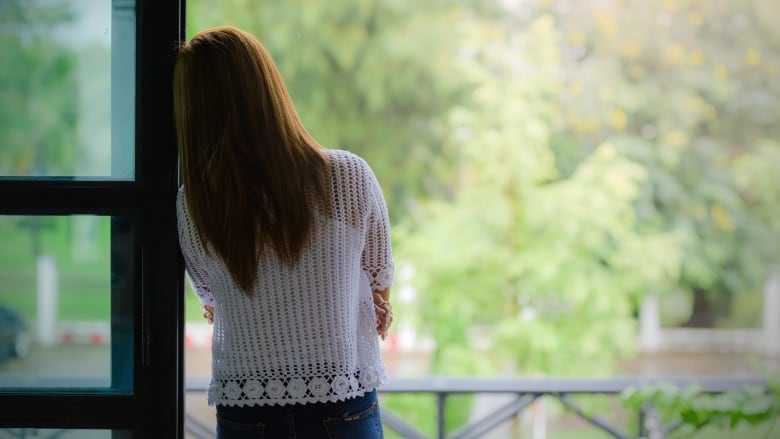We're all in this lonely world together
Holiday season a good time to tackle epidemic of loneliness

I was at my gym last month when an elderly woman approached me, wanting to know if she should make a Thanksgiving turkey or just buy a pre-cooked chicken to mark the occasion.
It wasn't long before I realized food wasn't the issue. The lady was lonely and desperate to talk to someone. I happened to be handy.
She commented on how quiet her house is since her husband passed away, how each day she struggles with loneliness, and how talking to strangers is better than feeling that way.
As someone who's lived with loneliness, I felt her pain.
Almost half of the 20,000 respondents to a May 2018 survey said they felt alone or left out either sometimes or always, global health service company Cigna reported. They used the UCLA Loneliness Scale, "a 20-item questionnaire developed to assess subjective feelings of loneliness, as well as social isolation."
In the survey, 27 per cent of respondents felt there was rarely or never anyone who really understood them. Only 53 per cent reported meaningful in-person social interactions (an extended conversation or quality time with friends or family) on a daily basis.
I've taken to writing in public spaces every evening, just to be in proximity to others.
What the heck is going on in our society? We are more connected than ever, but feel more isolated.
Whether it's due to the superficial nature of online interactions, fewer extended families or economic pressures forcing many to live far away from their friends and relations, I'm not sure.
What I do know is even if many people suffer from loneliness, it isn't something most people want to talk about. Loneliness is just a hair's-breadth away from depression, and it's not news that talking about mental illness is about as popular as Andrew Scheer at a feminist rally.
Loneliness is something I deal with regularly for a variety of reasons.
My sons live part-time with their father. I have very few relatives living here. Few friends have survived my bouts of chemical depression, which tend to drive me into isolation.
I've taken to writing in public spaces every evening, just to be in proximity to others.
The truth is, being alone when you want to be is fine. Being alone when you don't want to be is downright painful.
Scientists have known for a long time that loneliness can lead to depression, anxiety, schizophrenia and even hallucinatory delirium. (Remember Tom Hanks in Cast Away? He made friends with a volleyball, for pity's sake.)
However, it's only recently that they've found how destructive it is to the body.
A 2015 study by researchers at UCLA discovered that social isolation triggers cellular changes that result in chronic inflammation. Lonely people are rendered more likely to suffer serious physical conditions like heart disease, stroke, metastatic cancer and Alzheimer's disease.
We tend to joke about "crazy cat ladies" in our society, referring to those who have only animals for companionship. Trust me: they have coping skills from which we all could learn.
It's tough to get up every morning alone, go to work alone, work all day, come home alone and go to bed alone. It's not a good feeling when you're not sure how long it would take to be found if you fell down the stairs or slipped and hit your head in the shower.
Living like that takes a psychological fortitude that should be admired, not ridiculed.
My hat is off to the United Kingdom, which now has a cabinet-level minister whose job it is to deal with their epidemic of loneliness. This change was in reaction to a poll wherein 41 per cent of those asked said television or a pet is their main source of company.
I admire them for having named the problem, which is one step closer to dealing with it.
In Canada, we have a large, older population of Baby Boomers, a generation that doesn't strike me as the kind who will take this epidemic of loneliness lying down.
I wonder how long it will be before we see professional companions, whose job is simply to be entertaining and keep loneliness at bay?
In the meantime, there's a trend to locate daycares inside nursing homes. It seems like a brilliant idea, considering older people are usually most likely to feel lonely.
The children have a chance to acclimatize to their elders and learn from their life experiences. At the same time, nursing home residents get built-in visitors whose presence should help them feel less lonely and isolated.
As we slide into another festive season, tackling loneliness is even more crucial.
While it's easy to stay isolated, I've found that the best way out of it is to do what my new friend at the gym did: reach out and seek new connections.
Remember:if you're feeling lonely, you're not alone.
This column is part of CBC's Opinion section. For more information about this section, please read this editor's blog and our FAQ.












_(720p).jpg)


 OFFICIAL HD MUSIC VIDEO.jpg)
.jpg)



























































































